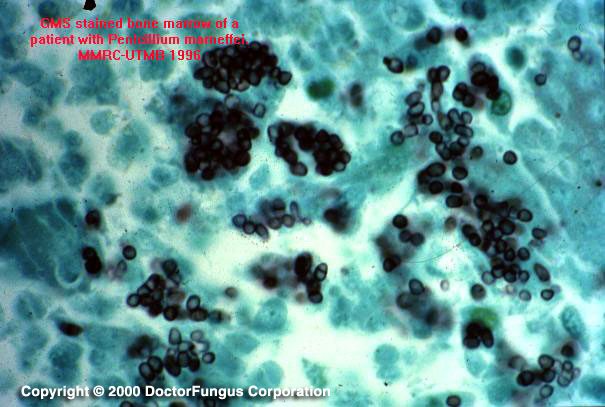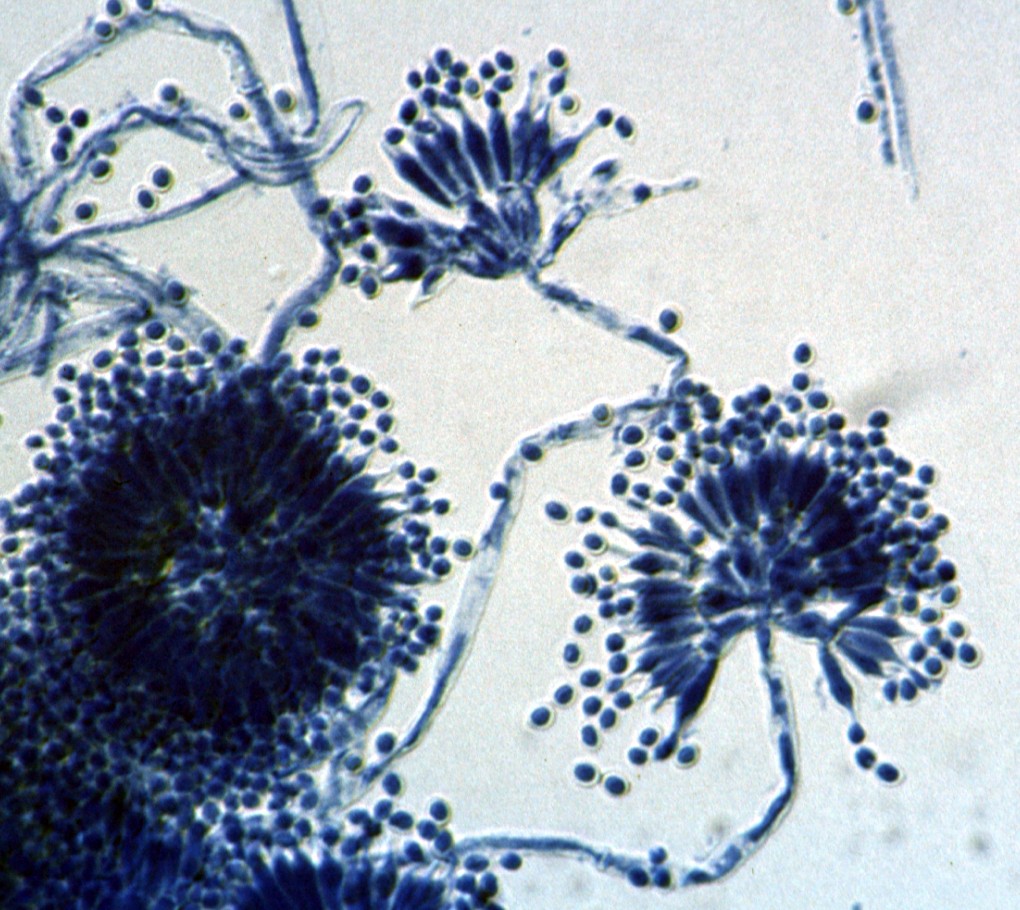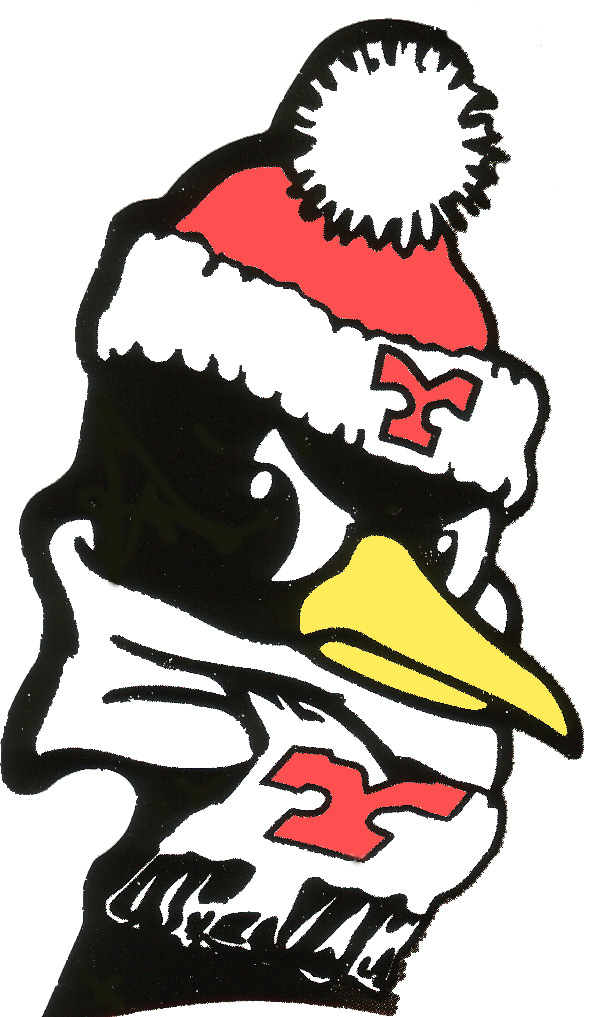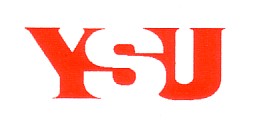 In vivo yeast phase of Penicillium marneffei (courtesy of www.doctorfungus.org) |
Medical Mycology Summer 2008 Semester First 6-Week Session (CRN 30224) |
 Chromoblastomycosis of a foot due to Phialophora verrucosa (courtesy of www.doctorfungus.org) |
Modified/Posted: June 28, 2008
Course Instructor: Dr. Chet Cooper, Associate Professor
Office Location: 4015 Ward Beecher Hall
Office Hours: MW, 11:30 AM - 12:30 PM; TR, 11:00 AM - 11:30 AM
Telephone/Voice: 330.941.1361 Email: crcooper01@ysu.edu
Lecture Day/Time: Tuesdays and Thursdays, 7:30 AM - 10:50 AM
Location: Ward Beecher Science Hall Auditorium, Room 3022
|
"Welcome to Medical
Mycology"
 I am Dr. Chet
Cooper, your course instructor for BIOL 4849, Medical Mycology. BIOL 4849 is three
semester-hour upper-division course at Youngstown State University
(YSU)
intended for undergraduate students majoring in biology, but students
in other majors may also find this course quite beneficial. I am Dr. Chet
Cooper, your course instructor for BIOL 4849, Medical Mycology. BIOL 4849 is three
semester-hour upper-division course at Youngstown State University
(YSU)
intended for undergraduate students majoring in biology, but students
in other majors may also find this course quite beneficial. As your instructor, I am wholly committed to providing you a sound education in the foundations of fungal diseases, which are also known by the scientific term "mycoses". With the same commitment on your part, I guarantee that your experiences in this course will give you a different and accurate perspective of the role that fungi play in causing disease in humans and animals. I very much look forward to an exceptional enjoyable semester as your instructor. Should you have any questions or comments about anything related to this, please be sure to contact me. Best Wishes for a Great Semester in Medical Mycology!  Course Description: (as published on page 263 of the 2007-2008 YSU Undergraduate Bulletin) BIOL 4849. Medical Mycology. Survey of infectious diseases caused by fungi including their etiology, epidemiology, histopathology, diagnosis, and treatment. Host-parasite interactions and the environmental and molecular factors that contribute to establishment of fungal disease in humans and animals. Prereq.: BIOL 3702. 3 s.h. Note: Students wishing to take this course but who do not hold the pre-requisite course, Microbiology (BIOL 3702), should see Dr. Cooper regarding possible solutions. Course Goals and Objectives: The goal of BIOL 4849 is to prepare students for professional careers that employ the principles of medical mycology. This will be accomplished through the mastery of the following specific objectives:
Course Materials: There is no standard textbook for this course. However, most of Dr. Cooper's lecture material will come from a variety of sources including the following:
Located in the Maag Library Reserves (ask
at the Circulation Desk, Main Floor) under the following call number:
RC117
.A86 2007 [textbook]
RC117 .A86 2006x CD-ROM [CD-ROM version of textbook]
Located in the Maag Library Reserves (ask
at the Circulation Desk, Main Floor) under the following call number: QR245 .C565 2003
Located in the Maag Library Reserves (ask
at the Circulation Desk, Main Floor) under the following call number: QR245
.C566 2003
Located in the Maag Library Reserves (ask
at the Circulation Desk, Main Floor) under the following call number: QR46 .T6 2005x [be sure to request volume 3 of this
series]
In addition, the following items have been placed on reserve in the Maag Library (3-hour in-library use):
In lieu of a textbook and in addition to the above reserve materials, students are encouraged to refer to qualified web resources. Use caution! There are a number of web sites that discuss fungi and the infections they cause. Listed below are some excellent web sites endorsed for use in this course: Other web site links may be added in the near future, so check back periodically. Finally, Dr. Cooper and your peers will make available a number of electronic versions of journal articles for you to read. These will be available for downloading directly from this web page or from the Electronic Journal Center of OhioLink. Grade Components: A student's final grade in BIOL 4849 will be based upon scores earned in three lecture examinations and two group presentations. Each examination is worth 100 points, whereas each presentation is worth 75 points, of which students will make two. Attendance will be taken, beginning on the third day of the course, and will be worth 50 points towards a student's final grade. For a student to receive a full day's attendance points, he/she must be present for the entire period. Hence, there are a total of 500 points in this course. The format of the examinations may vary to include short essay, multiple-choice, true-false, and matching questions. Students who are absent from an examination will have a score of "0" recorded. No exemptions to taking the examination on the scheduled date will be given except in cases of extreme circumstances. The decision of whether or not to grant an exemption is entirely at the discretion of the instructor and is not subject to further appeal. Student presentations will be small group projects and will be both peer and instructor graded according to a rubric that will be described prior to the assignment of topics. No opportunities will be granted for earning extra credit. Student initiated requests for extra credit opportunities will not be entertained and may be acidly received. Grading Scale. The following scale will be used to assign final grades for this course:
This grading scale is absolute. This is no "curving" of grades. Resources Used By The Course Instructor: Unless otherwise noted by Dr. Cooper, all material presented to students in this course represents either i) selected portions of information contained within the noted textbook(s) or supplementary material, ii) information published in the scientific literature, iii) current issues reported by the news media, or iv) knowledge otherwise commonly known to professional microbiologists or mycologists. Dr. Cooper makes no claim of "ownership" of facts and/or ideas presented in this course unless specifically noted. All facts and/or ideas are used solely for educational purposes. Dr. Cooper makes every effort to appropriately attribute facts and/or ideas to their proper sources. Academic Dishonesty: Academic dishonesty, in any form, will not be tolerated in this course. Students are urged to read the section on “Academic Honesty" as printed on page 40 of the YSU Undergraduate Bulletin, 2005-2006. Students should also be aware of pertinent sections in The Code (the latter is a PDF document). Any student enrolled in BIOL 4849 shown to have committed academic dishonesty in this course is deemed solely accountable for his/her actions and will receive a final course grade of "F". Additional sanctions may also be sought, i.e., a recommendation by the instructor for dismissal of the student from the University. Be aware that this policy includes unauthorized access of computer files associated with this course. The web site files associated with BIOL 4849 are monitored for unauthorized access. Entering these files even by "accident" will be considered a violation of academic integrity. Disability Statement: In accordance with University procedures, students who have a documented disability and require accommodations to obtain equal acess in this course must contact Dr. Cooper privately to discuss the individual's specific needs. Persons enrolled in this course and currently having a documented disability must notify Dr. Cooper of their needs no later than May 29, 2008. In addition, students having a disability must be properly registered with the Disability Services Office (Beeghly Hall, Room 3310; telephone 330.941.1372). Also, to be properly registered, a letter of accommodations verifying the student's eligibilty must be provided. Individuals who develop a disability during the semester must notify Dr. Cooper within one week after being properly registered with the Disability Services Office. Students with disabilities are reminded that in addition to certain rights and privileges covered by law and University policy, they also have obligations and responsibilities that must be met. Students are strongly encouraged to review these rights and responsibilities as outlined on the Disability Services Office web page. Other Responsibilities/Expected Behavior: Electronic Communication/Data Storage Devices. During lecture, all cellular telephones, pagers, or other electronic communication devices must be turned off or set in the quiet/vibration mode of operation. Data storage devices (e.g., personal desk assistants, lap top computers, etc.) may be used during lectures and only if they do not cause distraction to other students or the course instructor. Students failing to meet this expectation will be invited to leave the classroom until such time that they comply with this policy. During examinations and quizzes, all electronic devices (including personal desktop assistants, computers, etc.) are strictly prohibited. Students violating this policy will be suspected to have committed academic dishonesty. Recording of Lectures. Students are reminded that Dr. Cooper's lectures are copyright protected (see Copyright Restrictions). However, students are permitted to electronically record lectures in the classroom provided that: i) such activity is not disruptive to the instructor or fellow students; ii) the recording is used solely for the personal study of the student making the recording; iii) the recording is not sold or transmitted to others in any form without the expressed written permission of Dr. Cooper; and iv) the recording does not serve as a substitute for attending class or actively participating in the lecture. Examinations. Examinations are to be taken without assistance from other students. If you are aware of any student cheating or having a copy of the current exam, please contact the instructor. Academic dishonesty in any form will not be tolerated in this course. Penalties for such action will be enforced. Decorum. At all times, students are expected to exhibit behavior appropriate for young (or even older) adults. Such behavior is delimited by University policy. Inappropriate behavior, including disrespect for Dr. Cooper, is subject to expulsion from one or more lecture sessions without the opportunity to begin or complete the assigned exercises. In cases of extremely inappropriate behavior, Dr. Cooper will recommend more severe sanctions (including dismissal from the University). [Back
To Top of Page]
 Moldt phase of Penicillium marneffei. Lactophenol cotton blue stain from a slide culture (C. R. Cooper, Jr.) Posting of Grades/Scores:
Student grades/scores are periodically posted via this web page. However, students must provide their approval to have their individual grades/scores posted via the downloadable Grade Posting Permission Form. [click on the button below to download this form] Wtihout this form, individual student scores/grades will not be posted. A student may withdraw this permission at anytime by written notice to the course instructor. |
Multiple skin lesions due to disseminated infection
of Coccidioides immitis (courtesy of www.doctorfungus.org) Attendance: A record of attendance will be kept beginning on the third day of the course. Attendance is worth 50 points towards a student's final grade. Each lecture day, except for June 5th and June26th, is worth 6 points. For June 7th, a library work day, attendance is worth 2 points. For a student to receive a full day's attendance points, he/she must be present for the entire period. Please note, the lecture for this course begins promptly at 7:30 AM on Tuesdays and Thursdays throughout the semester. Also, be aware that this course operates on "Ward Beecher Time", which may or may not correlate to the time that exists at other places on campus. Students are strongly encouraged to synchronize their timepieces as well as to arrive early enough to find a suitable parking place. On those dates for which an examination is scheduled, students who are late may not be permitted to take the examination. This is entirely at Dr. Cooper's discretion. Moreover, except for extenuating circumstances, it is generally unacceptable for a student to request to take an examination at a time other than the scheduled date. Having a second examination the day before, the day after, or on the same day is absolutely certain not to evoke any sympathy from Dr. Cooper. Please do not even ask for special dispensation for such a reason. However, Dr. Cooper is willing to listen (and perhaps chuckle to himself) other reasons that a student may deem to be extenuating (please note - havng in excess of two grandmothers die during the semester will be considered suspicously gratuitous). The decision regarding the student's reasoned argument/request for a change in the examination date/time is solely at Dr. Cooper's discretion and, once rendered, is final. Required CUE Mail Account: All electronic communications with students enrolled in BIOL 4849 will only be made using the University's CUE (Common University Email) Mail system. All BIOL 4849 students must establish their CUE mail accounts if they have not done so already. To activate your free CUE mail account, go the CUE Frequently Asked Questions section of the web page located at the following URL: http://helpdesk.ysu.edu. Please note that a CUE mail account does not have to supplant your current non-CUE mail service. A feature of CUE mail is that all incoming messages can be forwarded to another email account. Hence, you can retain your present services and still receive all communications from Dr. Cooper. Distribution of Course Material: All original material on the BIOL 4849 course web site, as well as all original material presented in either the classroom or laboratory, including orally-transmitted lectures, is considered protected by a copyright held by Dr. Cooper. In general, students enrolled in BIOL 4849 have permission to download, print, and distribute materials copyrighted by Dr. Cooper without his expressed written permission so long as such materials are not used for activities i) associated with the commission of academic dishonesty, ii) intended to circumvent course policies, iii) which result in monetary profit by either the student or others, and iv) that do not violate copyright protections. For further information, please see Copyright Restrictions. Syllabus Acknowledgement Form: All students enrolled in this course must read this electronic syllabus and verify that they have done so by submitting a completed Syllabus Acknowledgement Form. [click on the button below to download this form] No grades will be given until this form is received.
|
||||||||||||||||||||||||||||||||||||




